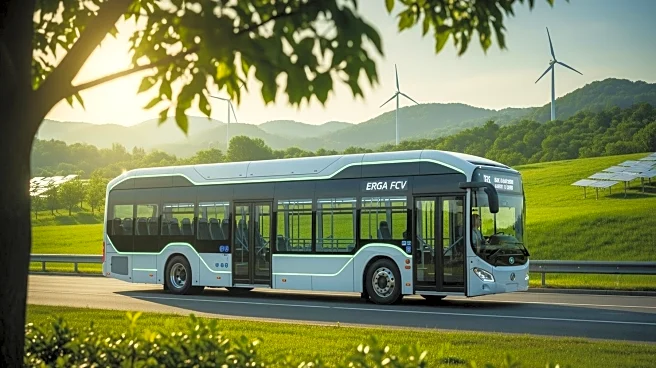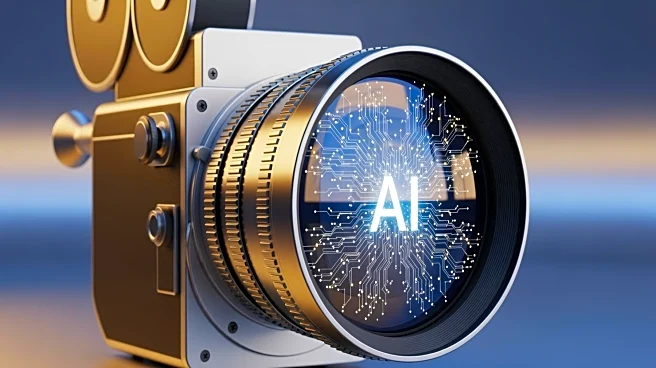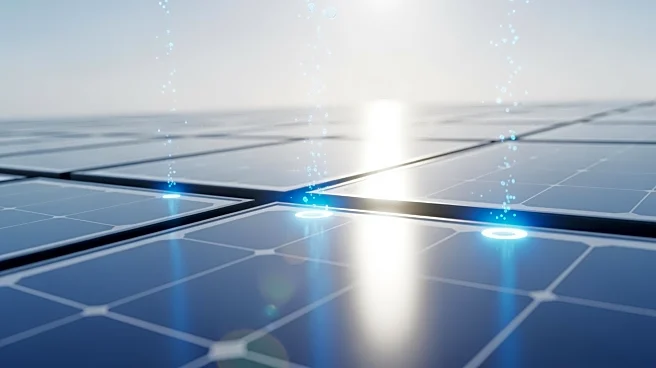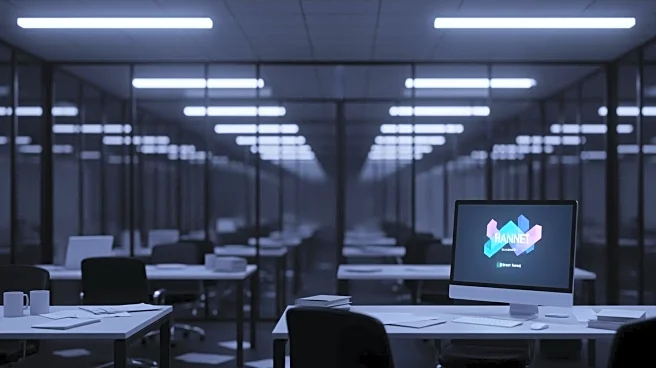What's Happening?
Isuzu Motors Limited has announced the world premiere of its next-generation fuel cell route bus, the ERGA FCV, at the Japan Mobility Show 2025. The bus is a collaborative effort between Isuzu and Toyota
Motor Corporation, with Isuzu handling the vehicle's design and Toyota developing the fuel cell system. The ERGA FCV is based on the urban model of the ERGA EV, a battery electric vehicle launched by Isuzu last year. This new model integrates Toyota's fuel cell system and hydrogen tanks into the roof structure, maintaining a flat-floor design for improved passenger convenience and safety. The bus generates electricity through a chemical reaction between hydrogen and oxygen, powering the vehicle's motor and emitting only water vapor, thus producing zero CO2 emissions. This development is part of Isuzu's mid-term business plan, ISUZU Transformation – Growth to 2030, which focuses on carbon-neutral solutions.
Why It's Important?
The introduction of the ERGA FCV represents a significant step towards achieving carbon neutrality in public transportation. By utilizing hydrogen fuel cells, the bus addresses one of the major challenges faced by battery electric vehicles: the lengthy energy replenishment time. Hydrogen refueling is much quicker, making fuel cell vehicles more practical for urban transit systems. The ERGA FCV's zero-emission operation aligns with global efforts to reduce environmental impact and combat climate change. This innovation not only enhances passenger experience with low vibration and quiet operation but also positions Isuzu and Toyota as leaders in sustainable mobility solutions. The collaboration between these automotive giants highlights the importance of partnerships in advancing green technologies.
What's Next?
Isuzu plans to continue its commitment to carbon-neutral solutions through collaborations with various partners. The ERGA FCV will be showcased as part of the Tokyo Future Tour 2035, indicating a long-term vision for sustainable urban transportation. As the demand for eco-friendly vehicles grows, Isuzu and Toyota may expand their fuel cell technology to other vehicle models, potentially influencing public policy and industry standards. The success of the ERGA FCV could encourage other manufacturers to invest in hydrogen fuel cell technology, further accelerating the transition to cleaner transportation options.
Beyond the Headlines
The development of the ERGA FCV could have broader implications for the automotive industry, particularly in terms of regulatory changes and infrastructure development. As hydrogen fuel cell technology becomes more prevalent, there may be increased pressure on governments to support the necessary refueling infrastructure. Additionally, the shift towards zero-emission vehicles could lead to new business opportunities in the renewable energy sector, as companies seek to produce and supply hydrogen sustainably. This transition may also prompt discussions on the ethical considerations of resource allocation and environmental responsibility.










